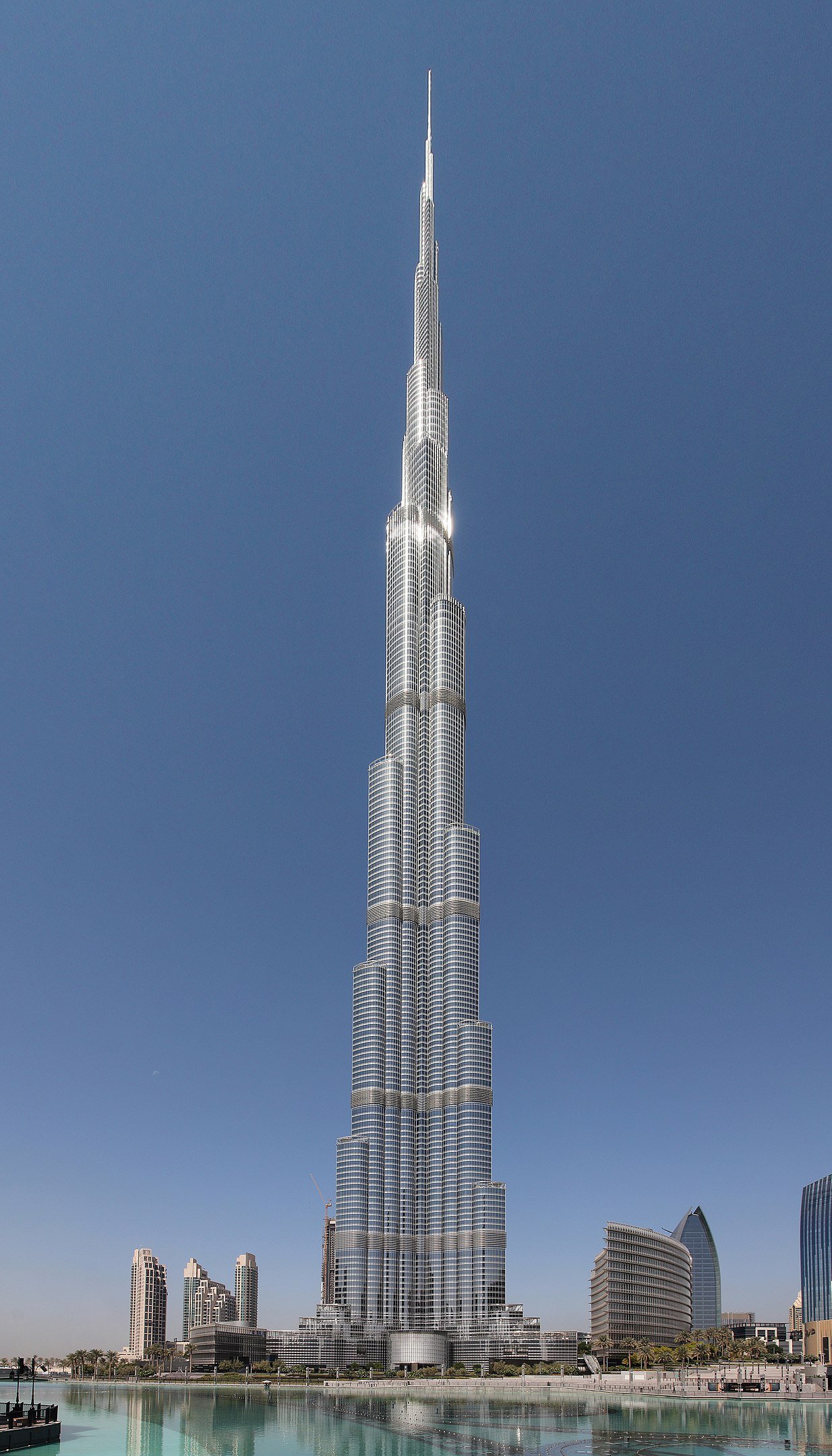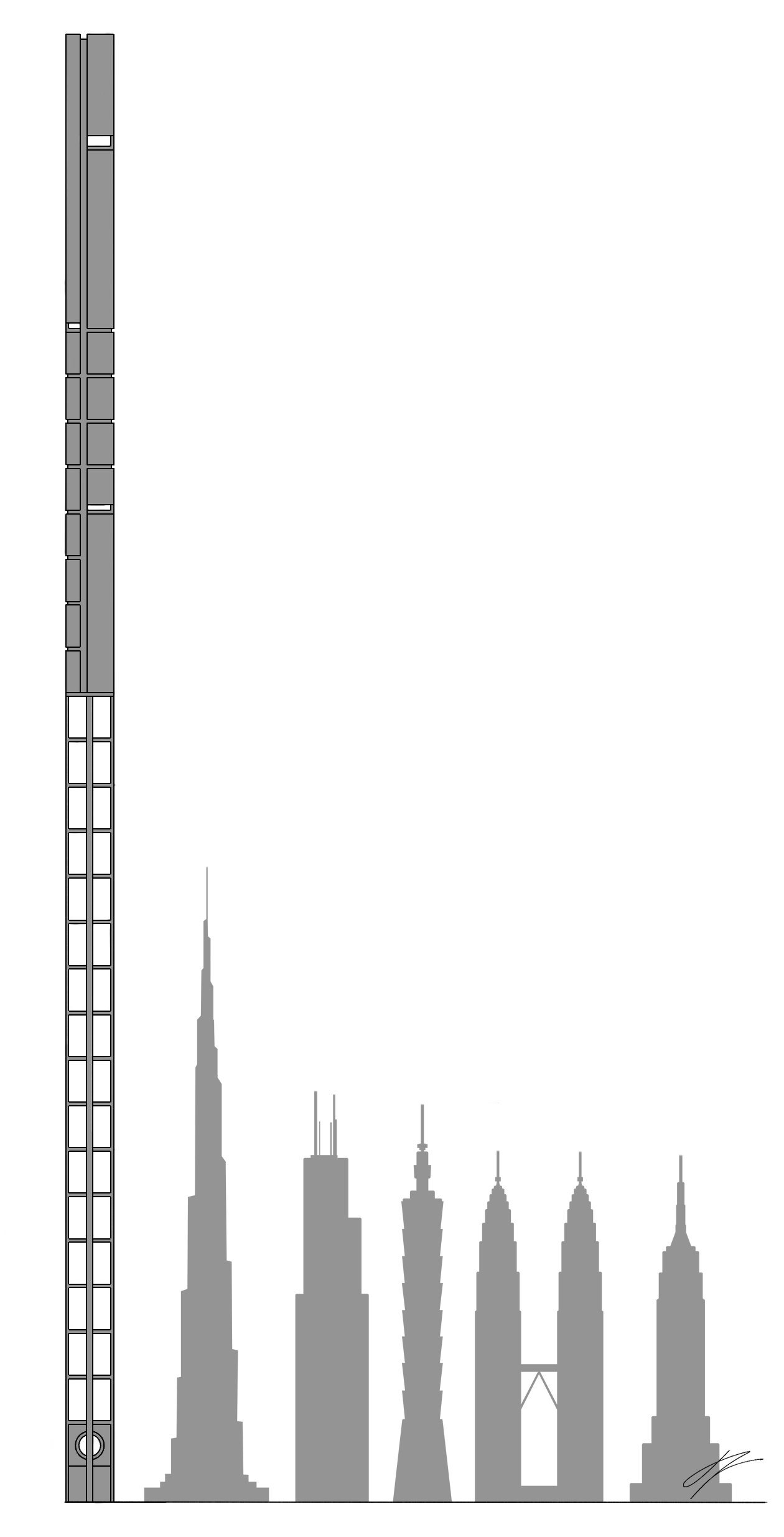LEAVE THE SQUALID STREETS BEHIND AND MOVE INTO A BLADE-TOWER TODAY!
Ground Level Is So Last Year
The first Blade Tower was built next to the now derelict Empire State building. There are people at ground level in this image—can you spot them?
“High-Rise Not For Low-Lives.”
New York Post Headline
The tallest skyscraper in the world is Dubai’s Burj Khalifa which tops out at 830 meters (2,722 feet), or just under half as tall as the first Blade Tower (Wiki). In person it’s amazing; not in terms of the architectural design—which is too gaudy for my tastes—but in its sheer scale.
The Burj dominates the city, which is the point. This is architecture as a political statement, something that has lead to many of the worlds biggest and/or most extreme buildings. It has a Y-shaped floor plan with a central core (the core is the solid part in the middle containing elevators, services, etc.). The three legs of the Y-shape plan brace the core, and reduce in size as they rise, creating a narrower cross section and reducing wind forces higher up.
The Burj Khalifa in all its gaudy glory 😀 The Burj is constructed from high performance concrete. A lot of concrete: 250,000 cubic meters. And 39,000 tonnes of steel. It took 22,000,000 labour-hours to construct. Think about that for a second—22,000,000 hours ÷ 24 = 916,667 days ÷ 365 = 2,511 years for one person to construct—ignoring leap years. I hope they negotiated overtime 🧐
Height Analysis comparing Blade Tower One to the previous world's tallest buildings (Left to right: Blade Tower One 1610m / Burj Khalifa 828m / Willis Tower 527m / Taipei 101 508 / Petronas 542m Empire State 449m) This video gives a good explanation of super-tall construction.
The Bhurj’s buttressed-column structure is necessary due to current construction technology, but after the invention of Mechanical Intelligences (AI) we will see a dramatic change in both construction materials and construction techniques.
I would expect extensive automation of the building process: autonomous factories producing the structural components, autonomous trucks driving them to site, autonomous cranes lifting them into place, autonomous welding or concrete-pouring platforms installing them, and so on.
And that is only considering conventional building techniques. If steel or concrete structures could be replaced by MI-developed materials such as carbon nanotubes (one hundred times stronger than steel, one-sixth the weight), then you will get much thinner and taller buildings.
Further, If these new building materials could be produced by spinnerets, similar to those on spiders (Wiki) it would be possible for buildings to grow itself from the ground up without getting into the biological hazards inherent in nanotech.
For the New York Blade Towers, Cortex Intelligent Machines manufactured huge spinnerets that work under direct MI control. These start at ground level, attached to material feeder tubes, then grow the tower upwards with no human involvement like vast composite trees. Next we will look at the tower designs in more detail, and what it's like for the rest of us left down here at ground level. If you have any questions or thoughts on Blade Towers or the world of 2050s NY drop me an email and let' chat! 😀
If you've read any of my books would it be possible for you to take a moment to leave a review please?
THE PARADISE FACTORY REVIEWS: USA / UK / CA / AU
THIS AUTOMATIC EDEN REVIEWS: USA / UK / CA / AU
THE GENESIS ENGINE REVIEWS: USA / UK / CA / AU
It only takes a few seconds, and would be incredibly helpful. Reviews help authors — a lot!
As always, thank you so much for all your love and support.😀


